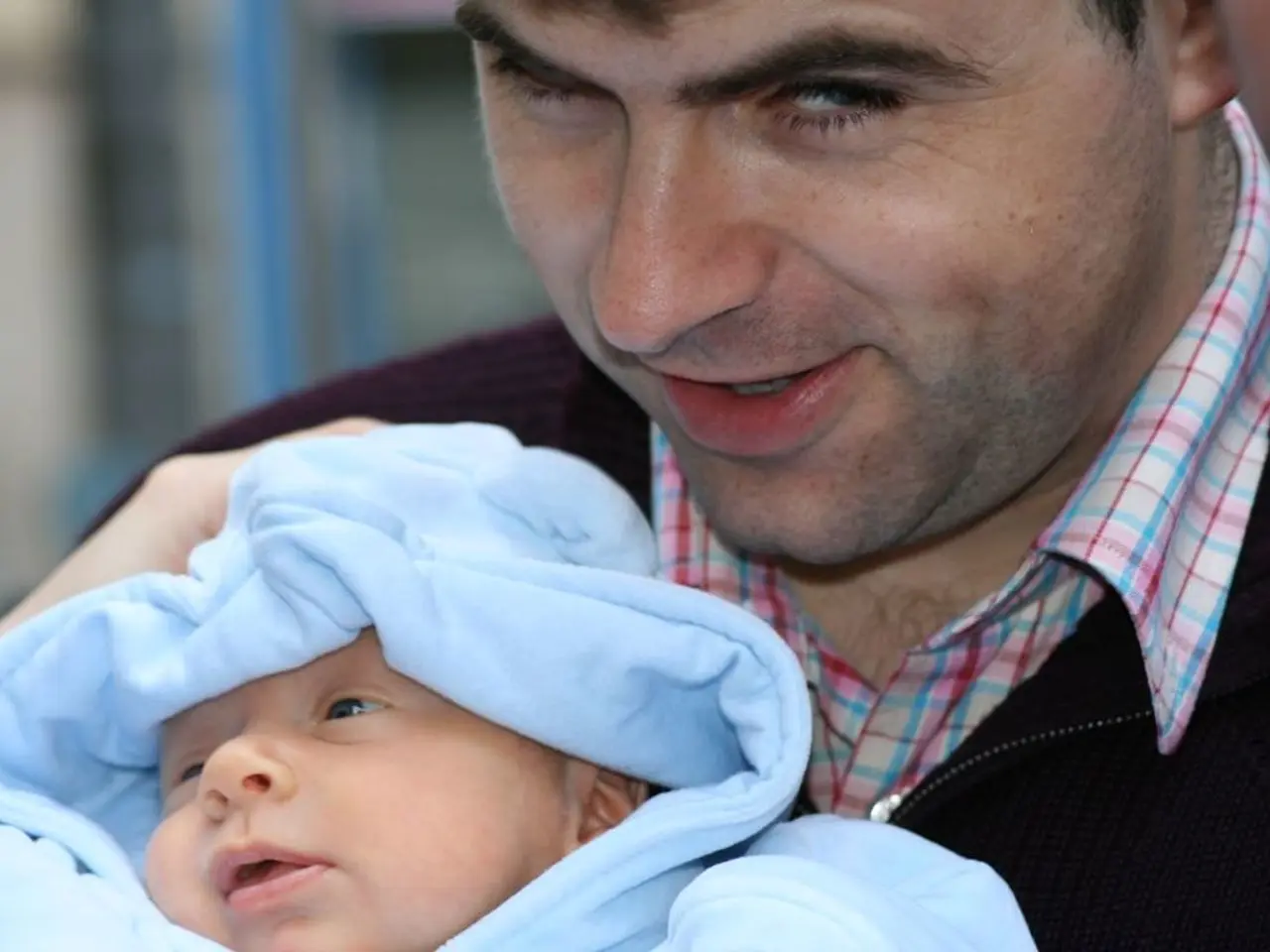Placenta with a ring shape: Understanding potential dangers, causes, and remedies
Pregnancy can be a wonderful and challenging journey, and for some women, it may come with unique complications. One such complication is a circumvallate placenta, a rare condition where the amnion and chorion fetal membranes of the placenta fold backward around the edges. This article aims to shed light on the common signs, risks, and management strategies associated with a circumvallate placenta.
The abnormal shape of a circumvallate placenta can lead to potential bleeding, particularly during the first trimester, which may serve as a significant indicator due to the uncovered villi prone to bleeding. Another concern is premature rupture of membranes (PROM), which can affect up to 10% of pregnancies and may be associated with a circumvallate placenta, especially in the second trimester.
The complications associated with a circumvallate placenta can include preterm delivery, placental abruption, increased risk of neonatal death, increased risk of needing neonatal intensive care unit admission, chronic lung disease, and emergency cesarean delivery. These risks are due to the abnormally thickened structure and smaller surface area of the placenta, which can hinder the efficient exchange of nutrients and oxygen.
However, it's essential to note that a study in 2014 revealed that while 64.1% of women with a circumvallate placenta experienced preterm delivery, only 10.9% had placental abruption, 8.9% had neonatal death, 55.4% required neonatal intensive care, 33.9% had chronic lung disease, and 46.5% required emergency cesarean delivery. Yet, a 2018 study suggested that some complications previously attributed to circumvallate placenta may not be solely responsible for these issues.
In terms of management, routine obstetric care is effective in helping women with a circumvallate placenta. Doctors will investigate further if a woman experiences PROM alongside vaginal bleeding in the second trimester, as it may indicate a circumvallate placenta. If a doctor diagnoses a circumvallate placenta before birth, they may recommend ways to help reduce the risk of lower birth weight and placental abruption.
If a woman has a placental abruption as a result of a circumvallate placenta, a doctor will usually recommend frequent monitoring, hospital bed rest, early delivery, and, sometimes, an emergency cesarean section. A fetus may grow more slowly in a woman with a circumvallate placenta, so a doctor may recommend more growth checks using ultrasound if the fetus is not growing fast enough.
In conclusion, the key clinical signs to watch for during pregnancy with a circumvallate placenta are vaginal bleeding, premature rupture of membranes, preterm birth, fetal growth restriction, and risk of placental abruption. These conditions make close monitoring necessary throughout the pregnancy. Proper medical care and monitoring are essential to help minimize the risk of complications associated with a circumvallate placenta. Although there is no way to treat a circumvallate placenta, a doctor may take steps to help reduce the risk of complications or treat them.
- Pfizer, in the realm of science, could potentially develop a predictive model to help identify women at risk of complications associated with a circumvallate placenta, aiding in early detection and management.
- Depression, a common medical-condition in pregnant women, should also be closely monitored, as elevated stress levels can potentially block the efficient exchange of nutrients and oxygen through the placenta, increasing risks for both mother and baby.
- In the health-and-wellness industry, advice for women with a circumvallate placenta may include focusing on maintaining a balanced diet and regular exercise, as these factors can positively influence the growth and development of the fetus.
- AQ, a company known for its focus on health-and-wellness, could collaborate with medical professionals to create informative resources for women with a circumvallate placenta, providing practical advice on managing this condition throughout pregnancy.




